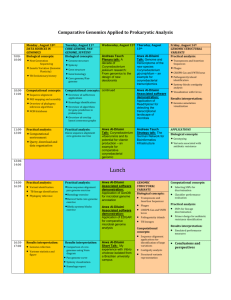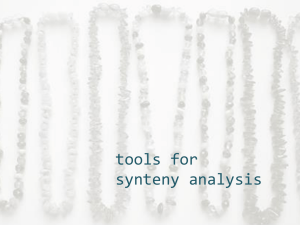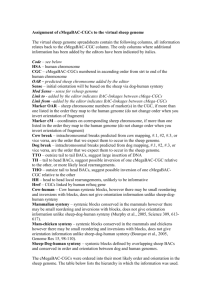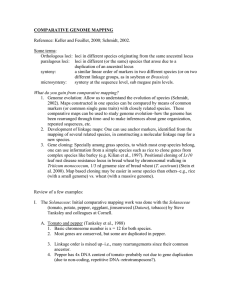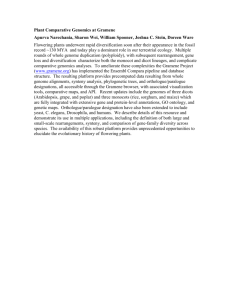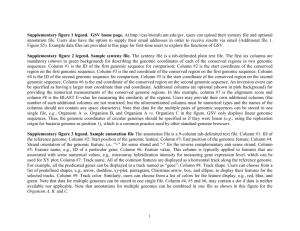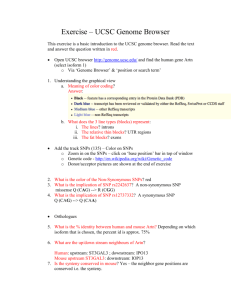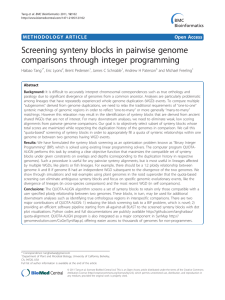Genome Synteny Viewer
advertisement
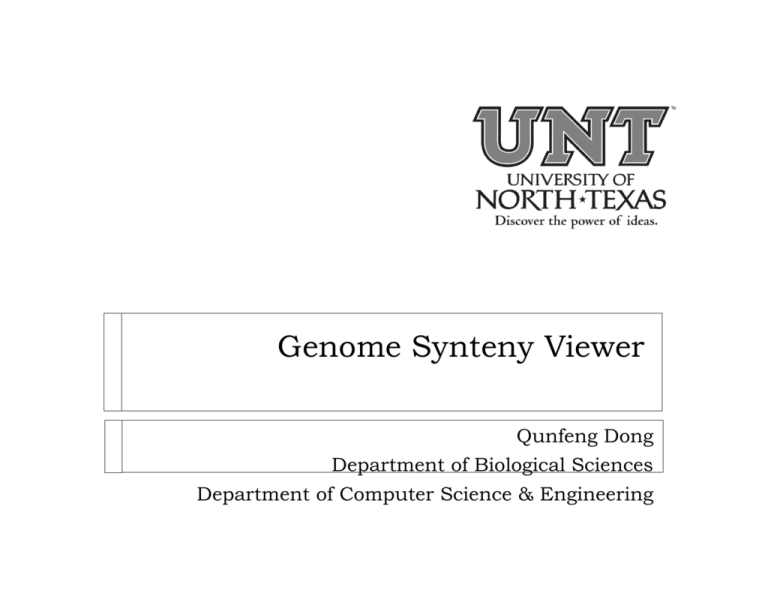
Genome Synteny Viewer Qunfeng Dong Department of Biological Sciences Department of Computer Science & Engineering } } } } Founded in 1890 Enrollment 36,067 } Undergraduate 28,283 } Graduate 7,784 Campus } 1167 acres in Denton, Texas } 163 buildings UNT offers 97 bachelor’s, 88 master’s and 40 doctoral degree programs. Background } What is Synteny? } } Why are we interested in Syntenic regions? } } } } Refers to a set of genomic features (e.g., genes or other genomic markers) that are conserved in the same relative order in two species (or two chromosomes in the same species). To decipher the genome evolutionary history To identify functionally conserved genomic elements. Tools to detect synteny. e.g., BLAST Visualization of Syntenic regions. } Biologists can eyeball the image to analyze patterns of complicated genome rearrangements Synteny Visualization Tools } Currently available web-based synteny visualization tools } } } } } } } Ensembl SyntenyView (Flicek, et al., 2011) NCBI’s MapView (Wolfsberg, 2010) SynBrowser (Pan, et al., 2005) Cinteny (Sinha and Meller, 2007) Gbrowse_syn (McKay et al., 2010) CoGe* (Lyons et al., 2008) Limitation } } Visualize synteny of pre-selected genomes provided by the web services. Biologists do not have the option to upload their own data and visualize synteny. (CoGe requires sequence input). Live Demo } GSV } } http://cas-bioinfo.cas.unt.edu/gsv mGSV } http://cas-bioinfo.cas.unt.edu/mgsv Acknowlegement } } } } Kashi Revanna Chi-Chen Chiu Daniel Munro Ezekiel Bierschank
